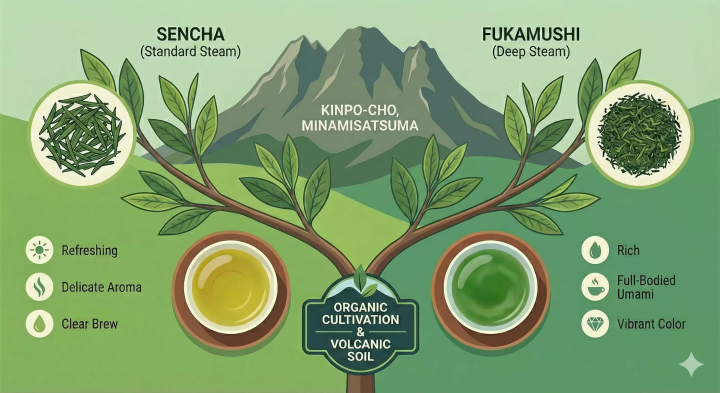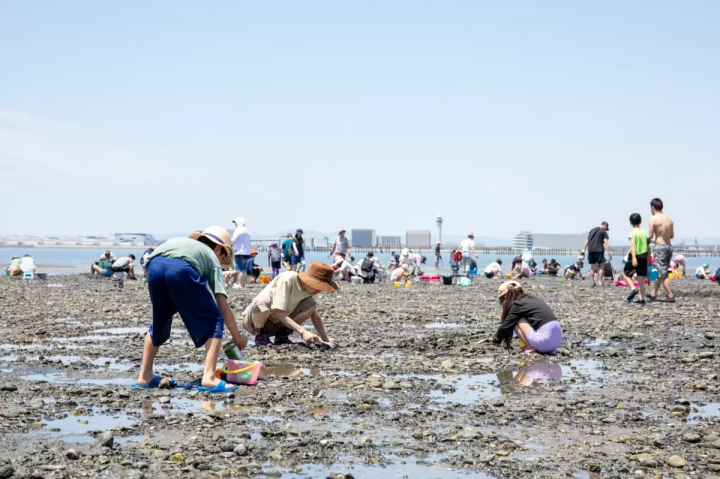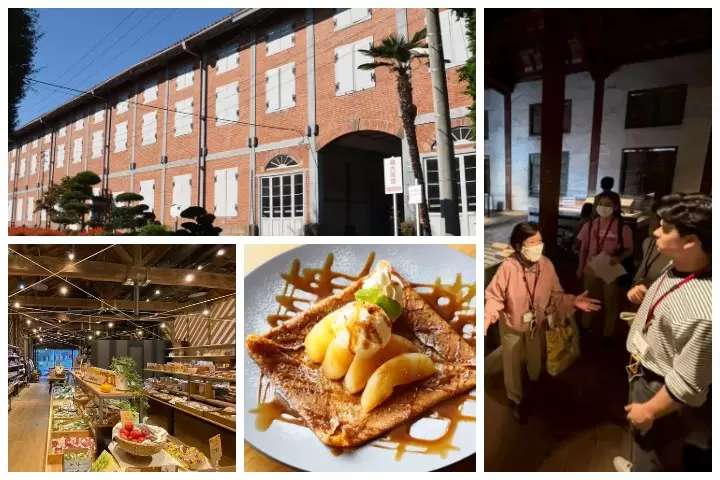Ready For Japan! Vol. 8 – Tour Japan With Street View! From Mt. Fuji To Gion

Get inspired by views of Japan from the comfort of your home by using Google Street View. We cover nine iconic destinations in Japan that you can tour virtually, from Itsukushima Shrine in Hiroshima to the summit of Mt. Fuji, to the charming streets of Gion, Kyoto.
Tour Japan's Famous Travel Destinations With Street View!
Being stuck at home for extended periods of time is difficult for most of us. When cabin fever hits, one of the best things to do is go on a trip––but with travel disrupted due to the worldwide spread of the coronavirus, going out is impossible.
However, you can satisfy some of your travel urges by embarking on a virtual trip using Google Street View. By taking advantage of this tool, you can visit some of Japan's most famous areas and attractions from home, and get inspired for your next travel opportunity.
In this article, we introduce must-see sightseeing destinations in Japan you can enjoy on a virtual stroll. You’ll have a completely different experience when visiting these spots in-person.
Read More
Special Feature: Ready For Japan!
1. Itsukushima Shrine, Hiroshima
Itsukushima Shrine on Miyajima Island in Hiroshima Prefecture is one of the top tourist destinations in Japan. The "floating" torii gates that stand in the middle of the ocean measure 16 meters in height.
This iconic view changes with the rise and fall of the tides. When the tides are low, it reveals a sandy beach leading to the torii gates that visitors can venture out on their own. Click on the arrows several times to move further forward in Street View to see this very sight.
2. Mt. Fuji's Summit
You can easily climb the summit of Mt. Fuji with Google Street View. Take a hike around a circular trail called the "Ohachi Meguri" (Crater Trail) along the mountain's crater rim. Many hikers that climb up to the summit will enjoy a stroll around the crater when the weather is nice.
Our writer once hiked to the summit of Mt. Fuji (*1). Hikers gather at the mountain's 5th station (2,300 meters, or 7,500 feet) at night, where they will begin their several-hour climb. Upon reaching the summit, our writer witnessed the sunrise from the mountain. Once on the summit, he was greeted by a magnificent sea of clouds—a sight he'll never forget.
*1: The official climbing season for Mt. Fuji is from July to September. The opening time of certain mountain trails changes slightly every year.
3. Gion, Kyoto
The streets of Kyoto are a must-see for anyone who visits Japan. This is Hanamikoji Street in the geisha district of Gion.
The rows of shops on the street here are called "ochaya," which are tea houses where geishas are called to entertain customers as they dine. This street is home to several exclusive establishments that visitors cannot enter without an introduction (a phrase called "Ichigen-san, okotowari"). Nevertheless, it's entertaining to walk along this atmospheric district.
Shijo-dori, the bustling main street that intersects Hanamikoji, is lined with souvenir shops. Continue clicking forward (back) in Street View to reach Shijo-dori.
Pontocho
Pontocho is another area to experience the historic atmosphere of a geisha district in Kyoto. You'll find small restaurants clustered on both sides of this charming back alley. It’s also home to many shops that are more easily accessible than those in Gion.
4. Dotonbori, Osaka
Let’s take a 180-degree turn and venture off into the big city! This is Dotonbori, a popular destination in Osaka, known for its colorful streets and hundreds of restaurants serving up delicious Kansai cuisine.
One of the best times to stroll Dotonbori is at night. You can see the impressive flashing neon lights from Ebisu Bridge over the Dotonbori River. Nearby, you'll find gigantic billboards that the neighborhood is most famous for. For example, if you go slightly forward in Street View and turn left, you'll spot the iconic jumbo crab billboard of Kani Doraku, a restaurant.
Read also
Tenjinbashisuji Shopping Street, Osaka
Another fun aspect of Osaka is shopping! Tenjinbashisuji Shopping Street is said to be the longest shopping street in Japan. Spanning 2.6 kilometers (1.6 miles), this is where you can catch a glimpse of the everyday life of Osakans. The stores range from local fast food eateries selling takoyaki, to drugstores and supermarkets.
It's considered light exercise to actually walk the entire shopping street. However, you won’t have to worry about that with Google Street View. Take a peek at the assortment of stores found here from the comfort of home.
5. Taketomi Island, Okinawa
Taketomi Island is a remote island in Okinawa. The local community here is known for its laidback vibe.
The village has rows of homes built with red terracotta Okinawan roof tiles. Walls of coral stone also protect the surrounding areas. As you weave through the houses in the village, carriages drawn by water buffalos can be seen coming and going. Voices singing folk songs can be heard while a strummed sanshin—a traditional Okinawan three-stringed instrument—reverberates through the village.
After passing through the village, you'll discover a glittering emerald green ocean beyond the fluttering butterflies in the forest. This is truly the visual embodiment of paradise.
6. Ginzan Onsen, Yamagata
Ginzan Onsen is an area filled with historical hot spring ryokans (Japanese inns). In the winter, the town transforms into a picturesque snowy wonderland. Ginzan Onsen previously flourished as a silver (or "gin" in Japanese) mine, thus giving the charming town (“ginzan” meaning “silver mine”) its name.
In recent years, this area has garnered attention for resembling the hot spring town in the Studio Ghibli film “Spirited Away.” The town was also the setting for “Oshin,” a hit television drama from the 1980s that has been broadcasted in over 70 countries.
7. Hagi, Yamaguchi
Hagi in Yamaguchi Prefecture is an area that once flourished as a castle town. The historical townscape and samurai residences have remained intact, which makes visitors feel as if they’ve traveled back in time.
Looking ahead in Street View, it may appear as if you’ve reached a dead end. But continue further ahead to see that the street makes a right-angled turn to the left. The unique structure of this street is called kaimagari (or "twisting at right-angles"). These twists and turns were deliberately made to confuse enemies in the event of an invasion.
8. Ouchi-juku, Fukushima
A village similar to the famous Shirakawa-go exists in Fukushima Prefecture. Ouchi-juku was once an important stopover spot during the Edo Period and has managed to retain its scenery thanks to early preservation efforts.
The village's residents continue to live in these buildings today. Many of the traditional structures also operate as souvenir shops, soba (buckwheat) noodle restaurants, and traditional Japanese cafes. In winter, the thick snow adds another layer of beauty to the scenery!
9. Takachiho, Miyazaki
The final place on our list is Takachiho in Miyazaki Prefecture.
Steeped in Japanese mythology, this town in southern Japan has many sites that recount the story of the country's creation. Today, the legends mentioned in this ancient folklore can be found in the area's vast nature, including Amano Iwato Shrine and Kunimigaoka (*3).
Takachiho Gorge is one such place where you can experience marvelous landscapes. Watching the cascade at Manai Falls—one of the top 100 waterfalls in Japan—from a height of 17 meters is incredible! There are no promenades, but you can experience the beauty and thrill of nature up close by taking a rental boat.
*3: In Japanese mythology, legend states that Amaterasu Omikami, the sun goddess, hid in the cave of Amano Iwato in a fury from her rowdy brother Susanoo-no-Mikoto. Amano Iwato Shrine is dedicated to Amaterasu and was built near the cave where the sun goddess is said to have hidden away. The legend in Kunimigaoka claims that Takeiwatatsu-no-Mikoto, the grandchild of Emperor Jinmu—the first Emperor of Japan—stood on that very hill surveying the Kyushu region.
Planning Your Trip to Japan!
The locations we introduced today are just a handful of the many sightseeing destinations in Japan. On your next trip here, you'll be able to stroll and breathe in the air at these very spots in person!
MATCHA provides readers with travel information they can enjoy from the comfort and safety of home through our "Ready For Japan!" series. We hope that this special feature will assist you in preparing for future trips and make your day a little more exciting. There is a lot of content where you virtually experience Japan from home, so be sure to take a look!
Main image by Pixta
MATCHA Editer.






















































